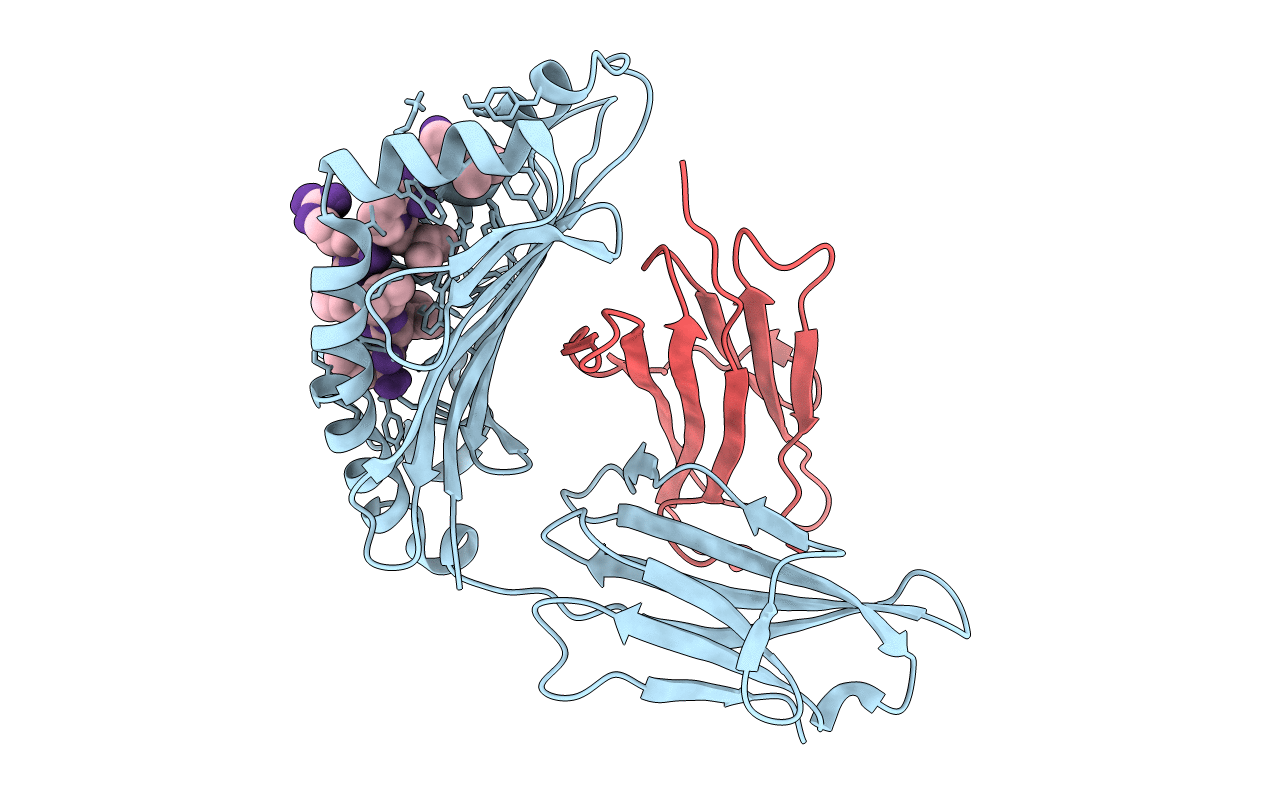
Deposition Date
2021-04-19
Release Date
2021-08-18
Last Version Date
2024-10-09
Entry Detail
PDB ID:
7MJ9
Keywords:
Title:
HLA-A*02:01 bound to Neuroblastoma Derived mutant IGFBPL1 peptide
Biological Source:
Source Organism(s):
Homo sapiens (Taxon ID: 9606)
Expression System(s):
Method Details:
Experimental Method:
Resolution:
1.75 Å
R-Value Free:
0.19
R-Value Work:
0.16
R-Value Observed:
0.16
Space Group:
P 1 21 1


